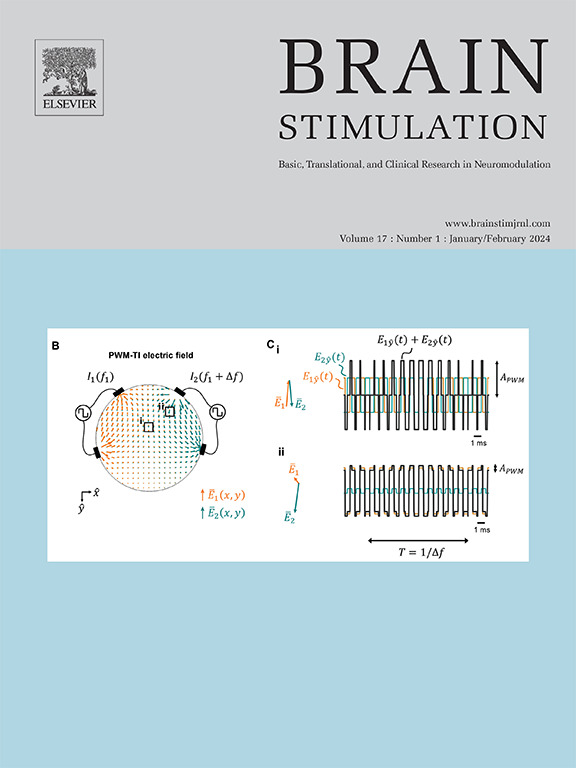Where is the exit? The ethical importance of exit plans in clinical trials with neural implants
IF 7.6
1区 医学
Q1 CLINICAL NEUROLOGY
引用次数: 0
Abstract
Background
As clinical trials involving implantable neural devices (INDs) increase in frequency and attract greater public attention, it is paramount to ensure they are conducted in alignment with fundamental ethical guidelines. Particular focus must be placed on the often underexplored aspect of trial termination for INDs.
Objective
To systematically review the ethical challenges encountered in clinical trials for INDs at the juncture of trial termination.
Methods
We conducted a rapid review using PubMed with two specific search queries, including all publications addressing ethical issues in the context of IND clinical trials. Priority was given to publications focusing on the end of treatment or the discontinuation of clinical studies or trials.
Results
We identified three primary groups of ethical challenges: patient-centric challenges, challenges faced by the research and physician team, and manufacturer-related issues. Further analysis highlights the importance of initiating early, transparent discussions regarding trial cessation protocols, ensuring that all stakeholders—patients, healthcare providers, researchers, and manufacturers—are equitably considered. Additionally, we found a discrepancy between current discontinuation strategies and international ethical guidelines. To address this, we emphasize the ethical obligation to establish comprehensive exit strategies that align with the principles in the Declaration of Helsinki and the CIOMS/WHO guidelines.
Conclusion
Our findings highlight the need for increased attention to the ethical and practical aspects of exit strategies and encourage further empirical research to address gaps in current practices. This would ensure that the discontinuation of IND trials is handled with ethical rigor, prioritizing the interests and well-being of all stakeholders involved.
出口在哪里?神经植入临床试验中退出计划的伦理重要性。
背景:随着涉及植入式神经设备(IND)的临床试验日益频繁,并吸引了更多的公众关注,确保这些试验的开展符合基本的伦理准则至关重要。必须特别关注 INDs 试验终止这一往往未得到充分探讨的问题:系统回顾 INDs 临床试验终止时遇到的伦理挑战:我们使用 PubMed 进行了快速综述,使用了两个特定的搜索查询,包括所有涉及 IND 临床试验伦理问题的出版物。结果:我们发现了三类主要的伦理问题:我们发现了三类主要的伦理挑战:以患者为中心的挑战、研究和医生团队面临的挑战以及与制造商相关的问题。进一步的分析凸显了就停止试验方案展开早期、透明讨论的重要性,从而确保所有利益相关者--患者、医疗服务提供者、研究人员和生产商--都能得到公平的考虑。此外,我们还发现目前的停药策略与国际伦理指南之间存在差异。为解决这一问题,我们强调了制定符合《赫尔辛基宣言》和 CIOMS/WHO 指南原则的全面停药策略的道德义务:我们的研究结果突出表明,有必要加强对退出策略的伦理和实践方面的关注,并鼓励进一步开展实证研究,以弥补当前实践中的不足。这将确保在处理 IND 试验的终止时遵守严格的道德规范,优先考虑所有相关方的利益和福祉。
本文章由计算机程序翻译,如有差异,请以英文原文为准。
求助全文
约1分钟内获得全文
求助全文
来源期刊

Brain Stimulation
医学-临床神经学
CiteScore
13.10
自引率
9.10%
发文量
256
审稿时长
72 days
期刊介绍:
Brain Stimulation publishes on the entire field of brain stimulation, including noninvasive and invasive techniques and technologies that alter brain function through the use of electrical, magnetic, radiowave, or focally targeted pharmacologic stimulation.
Brain Stimulation aims to be the premier journal for publication of original research in the field of neuromodulation. The journal includes: a) Original articles; b) Short Communications; c) Invited and original reviews; d) Technology and methodological perspectives (reviews of new devices, description of new methods, etc.); and e) Letters to the Editor. Special issues of the journal will be considered based on scientific merit.
 求助内容:
求助内容: 应助结果提醒方式:
应助结果提醒方式:


